Solar-Powered Water Quality Monitor Built With XIAO RP2040
This solar-powered water quality monitoring system by Justin Lutz is to combat the toxic blue-green algae in the nearby pond. Utilizing the Seeed Studio XIAO RP2040 and a set of water sensors, he gathered essential data to establish a baseline for the water conditions. The main goal was to monitor fluctuations in variables that could potentially signal an elevated risk of algal blooms.
Seeed Hardware: Seeed Studio XIAO RP2040, Seeed Studio Grove Base for XIAO, Grove – Temperature & Humidity Sensor (DHT11), Grove – ORP Sensor Kit Pro, Grove – TDS Sensor/Meter For Water Quality, LiPo Rider Pro, Small Solar Panel 116x160mm 2.5W
Software: Arduino, Blues Notehub, Datacake
Industry: Environmental Monitoring, Agriculture, Aquaculture, Industrial Processes
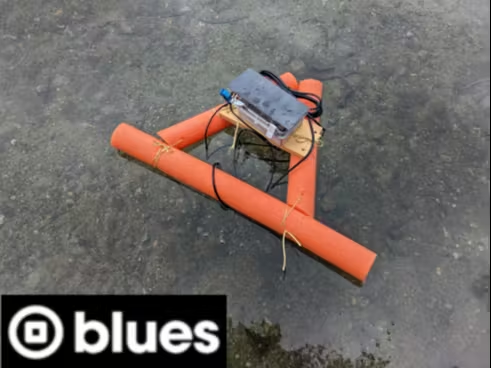
The Background
Toxic algal blooms, also known as cyanobacteria or blue-green algae, can be harmful to humans and animals. These blooms thrive in warm, slow-moving, and nutrient-rich waters, often caused by factors like increased summer temperatures and fertilizers or sewage runoff. The algae can rapidly grow and turn toxic, leading to sickness in humans and even death in pets and other animals. Moreover, as the algae consume oxygen from the water, it creates “dead zones” where aquatic life, such as fish, cannot survive. Justin Lutz, who lives near a pond frequently impacted by algal blooms, decided to develop a monitoring system. His goal was to gather baseline water data and track variables to assess the risk of future algal blooms, particularly during the summer when the pond’s water temperature rises quickly and nutrient levels increase from local lawns and septic systems.
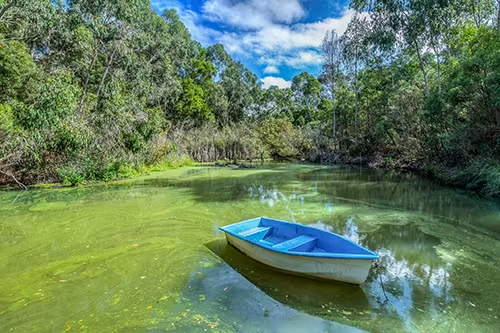
The Challenge
Water quality monitoring requires accurate and reliable sensors to measure various parameters. Ensuring the sensors are calibrated correctly, resistant to fouling, and have minimal drift over time is crucial for accurate data collection.
The Solution
Justin developed a water monitoring system comprising several sensors: an Oxidative Reduction Potential (ORP) Sensor, a Total Dissolved Solids (TDS) Sensor, a Water Temperature Sensor, and an Air Temperature and Humidity Sensor. To ensure the system could withstand water conditions, he carefully minimized the component sizes to fit into a waterproof enclosure he had available.
For seamless sensor integration, Justin opted for the Seeed Studio XIAO RP2040 mounted on the XIAO Grove Shield, allowing easy connections using the Grove interface. To power the system sustainably, he incorporated a 5V solar panel, Seeed Lipo Rider Pro for solar power management, and a 3.7V 3700 mAh LiPo battery.
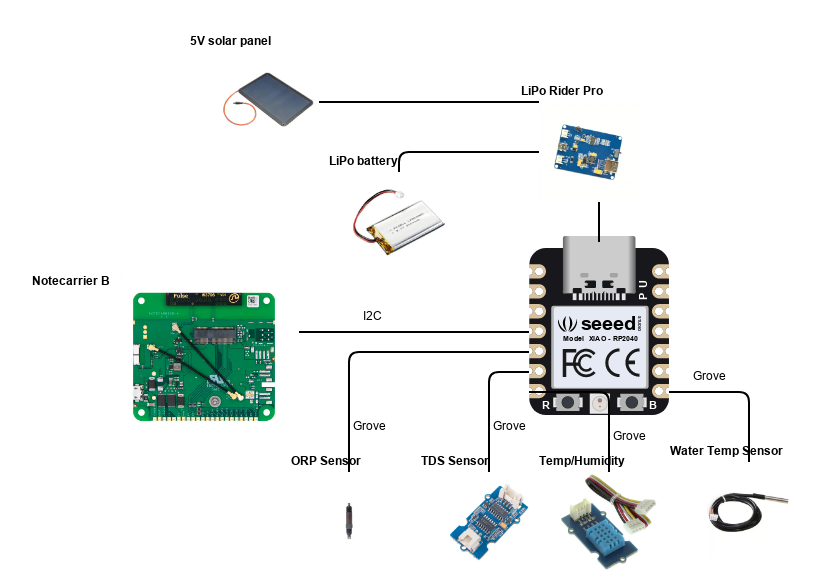
The sensor wires were passed through an enclosure opening and sealed securely. Justin mounted the enclosure on a simple base attached to a pool noodle, providing buoyancy. The sensors were positioned in the water, except for the air temperature and humidity sensor, which collected valuable data for analysis.
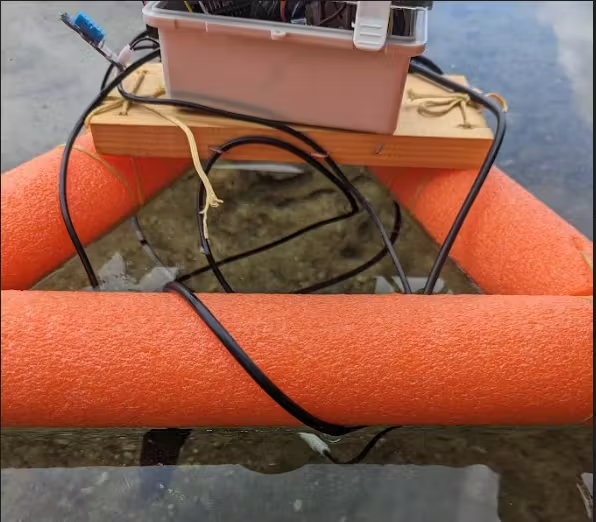
Moreover, Justin used the Blues Notecarrier B to transmit data to the cloud, and used Datacake for data visualization.
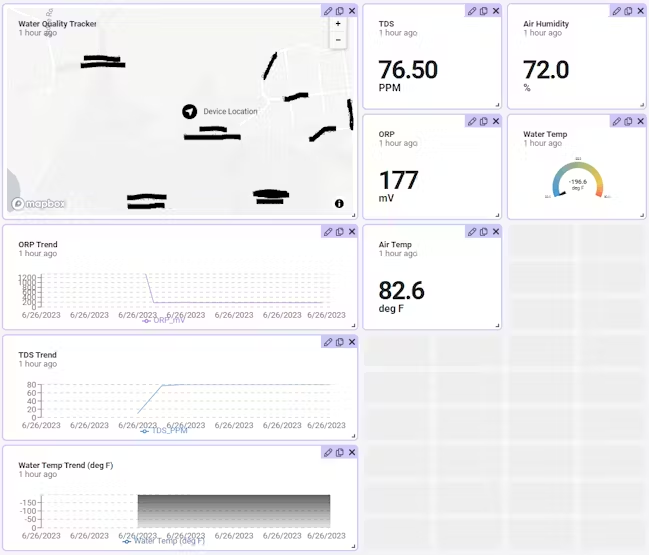
The Results
Justin was delighted to find that his float proved sturdy enough to hold the hardware, sensors, and enclosure. The monitor collected readings every 2 minutes to generate sufficient data for trend analysis. However, in practical scenarios, it would be more appropriate to sample much less frequently, maybe once every several hours, considering that significant value changes occur over days rather than minutes.
More Information
Learn More Project Details on Hackster: Water Quality Monitor with Blues!
Please feel free to reach out to maker.team@seeed.cc for any inquiries or if you’d like to engage in further project discussions. Your questions and interest are welcomed.